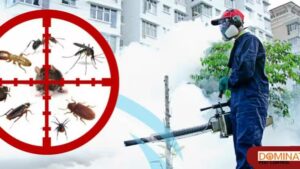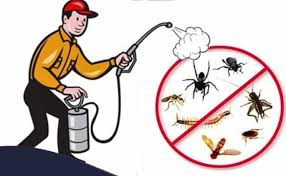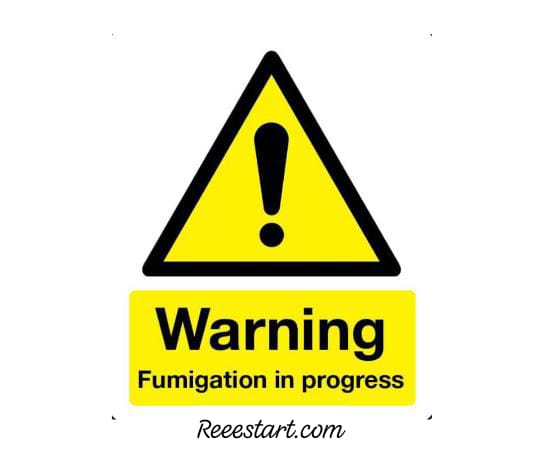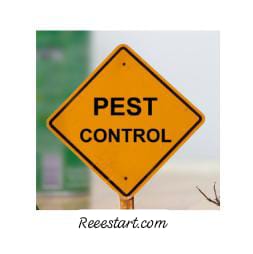In the UAE, where maintaining a clean and safe living environment is critical, Pest Control in Residential Buildings is an essential service. Effective pest Control For UAE Residential Buildings not only ensures residents’ comfort and safety but also complies with local regulations aimed at maintaining hygiene standards. In this context, pest control in residential buildings is not just about eliminating pests—it’s about creating a healthy, pest-free living space. Here’s how pest control services are tailored to meet the specific needs of residential buildings in the UAE.
Effective Pest Control for UAE Residential Buildings 2025
effective pest control in residential buildings has become a priority in 2025, Advanced pest management strategies now emphasize eco-friendly solutions, integrated pest management (IPM), and smart technologies to ensure long-term protection for homes and apartments.

Compliance with Local Regulations
The UAE has stringent laws and regulations governing pest control, primarily overseen by local health authorities and municipalities. These regulations are designed to maintain cleanliness and hygiene in all types of buildings, including residential complexes. Pest control companies must ensure that they comply with the UAE Ministry of Climate Change and Environment (MOCCAE) regulations, using only approved methods and chemicals. Non-compliance could result in fines or actions taken against the building’s management.
Professional pest control companies offer:
- In-depth knowledge of local pest control laws and regulations.
- Use of only registered and approved chemicals.
- Regular guidance to building management to ensure compliance during inspections.
Regular Inspections and Monitoring
For effective pest control, residential buildings in the UAE must have scheduled pest inspections. The frequency of these inspections typically depends on the size of the building, its location, and the level of pest risk. Regular inspections help identify potential pest problems early, ensuring that the necessary action is taken before an infestation spreads.
Professional pest control companies offer:
- Customized inspection schedules based on building size and pest risk factors.
- Regular checks of common areas such as hallways, service rooms, and waste disposal areas.
- Thorough monitoring of entry points like doors, windows, and ventilation systems.

Protecting Common Areas
In residential buildings, common areas like hallways, service rooms, and staircases are often the most vulnerable to pest infestations. These shared spaces are not only frequented by all residents but are also more prone to pest entry due to their high traffic and proximity to waste disposal areas. Pest control services are crucial in safeguarding these areas from pests such as cockroaches, rodents, and ants.
Professional pest control companies offer:
- Targeted pest control treatments for common areas like hallways and service rooms.
- Sealants for cracks, crevices, and entry points to prevent pest entry.
- Baiting and monitoring systems to control rodent activity in shared spaces.
Identifying and Sealing Entry Points
Rodents and other pests often enter residential buildings through gaps or cracks in walls, floors, or around windows and doors. Identifying and sealing these entry points is an essential part of preventing infestations. Pest control companies conduct thorough inspections of potential access points to ensure that pests cannot enter or breed inside the building.
Professional pest control companies offer:
- Identification of potential entry points for pests like rodents, cockroaches, and ants.
- Sealing of cracks, gaps, and holes around windows, doors, and pipes to block pest access.
- Installation of mesh or barriers to prevent pests from entering the building.
Use of Approved and Safe Pest Control Products
Pest control in residential buildings requires the use of safe, effective products that do not harm the environment or the health of residents. The chemicals used must be approved by local authorities, and pest control companies must adhere to strict safety guidelines when applying them. This ensures that while pests are eliminated, residents and their families are kept safe from any harmful substances.
Professional pest control companies offer:
- Safe, eco-friendly pest control solutions that are both effective and non-toxic.
- Use of government-approved chemicals for pest management.
- Clear documentation of all pesticides used, including product safety data sheets.
Maintaining Resident Satisfaction and Safety
In residential buildings, the safety and satisfaction of residents are top priorities. Pest control efforts must be carried out with minimal disruption to daily life. Professional pest control companies ensure that treatments are conducted efficiently and at times that cause the least inconvenience to residents. Additionally, pest control companies must be mindful of maintaining a clean and safe environment during and after treatment.
Professional pest control companies offer:
- Non-invasive pest control solutions that minimize disruption to residents.
- Clear communication with building management to schedule treatments and inform residents.
- Safe pest control practices that protect both residents and technicians.
Pest control in residential buildings is a critical service in the UAE, ensuring that residents live in a clean, safe, and comfortable environment. Adhering to local regulations, conducting regular inspections, and addressing common areas and entry points are essential strategies in maintaining a pest-free building. By working with professional pest control services, residential buildings can protect their reputation, ensure the safety and satisfaction of residents, and avoid the legal and health risks associated with pest infestations.
Professional pest control companies offer:
- Comprehensive pest control solutions tailored to the unique needs of residential buildings.
- Regular inspections, treatments, and follow-ups to maintain a pest-free environment.
- Expert guidance on pest prevention and building maintenance to minimize future infestations.
- Incorporating these strategies into residential pest control not only meets regulatory requirements but also provides peace of mind for residents, ensuring a healthier living space for all.




